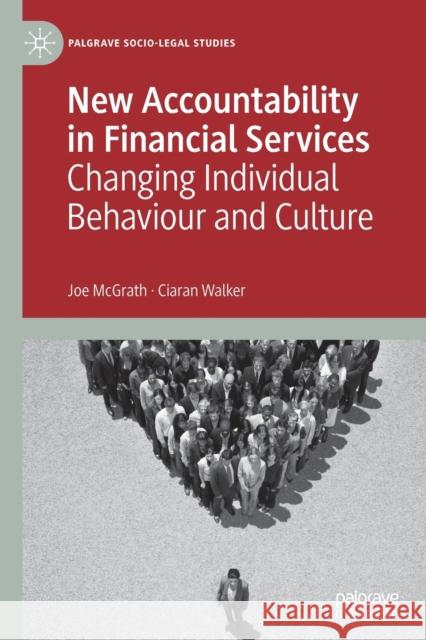New Accountability in Financial Services: Changing Individual Behaviour and Culture » książka
New Accountability in Financial Services: Changing Individual Behaviour and Culture
ISBN-13: 9783030887179 / Angielski / Miękka / 2022 / 222 str.
New Accountability in Financial Services: Changing Individual Behaviour and Culture
ISBN-13: 9783030887179 / Angielski / Miękka / 2022 / 222 str.
(netto: 420,71 VAT: 5%)
Najniższa cena z 30 dni: 424,07
ok. 22 dni roboczych.
Darmowa dostawa!
This book is a critical examination of recently introduced individual accountability regimes that apply to the financial services industry in the UK (SMCR) and Australia (BEAR and the forthcoming FAR), together with a forthcoming new individual accountability regime ( in particular, SEAR) in Ireland. It provides a framework for analysing whether these regimes will achieve behavioural change in the financial services industry. This book argues that, whilst sanctioning individuals to deter future misconduct is an important part of any successful regulatory strategy, the focus should be on ensuring that individuals in the financial services industry internalise the norms of behaviour expected under the new regimes. In this regard, the analysis in this book is informed by criminological theory, regulatory theory and behavioural science. The work also argues for a “trajectory towards professionalisation” of financial services, and banking in particular, as an important means of positively influencing industry-wide norms of behaviour, which have a key influence on firms’ and individuals’ behaviours.
This book is a critical examination of recently introduced individual accountability regimes that apply to the financial services industry in the UK (SMCR) and Australia (BEAR and the forthcoming FAR), together with a forthcoming new individual accountability regime ( in particular, SEAR) in Ireland. It provides a framework for analysing whether these regimes will achieve behavioural change in the financial services industry. This book argues that, whilst sanctioning individuals to deter future misconduct is an important part of any successful regulatory strategy, the focus should be on ensuring that individuals in the financial services industry internalise the norms of behaviour expected under the new regimes. In this regard, the analysis in this book is informed by criminological theory, regulatory theory and behavioural science. The work also argues for a “trajectory towards professionalisation” of financial services, and banking in particular, as an important means of positively influencing industry-wide norms of behaviour, which have a key influence on firms’ and individuals’ behaviours.











